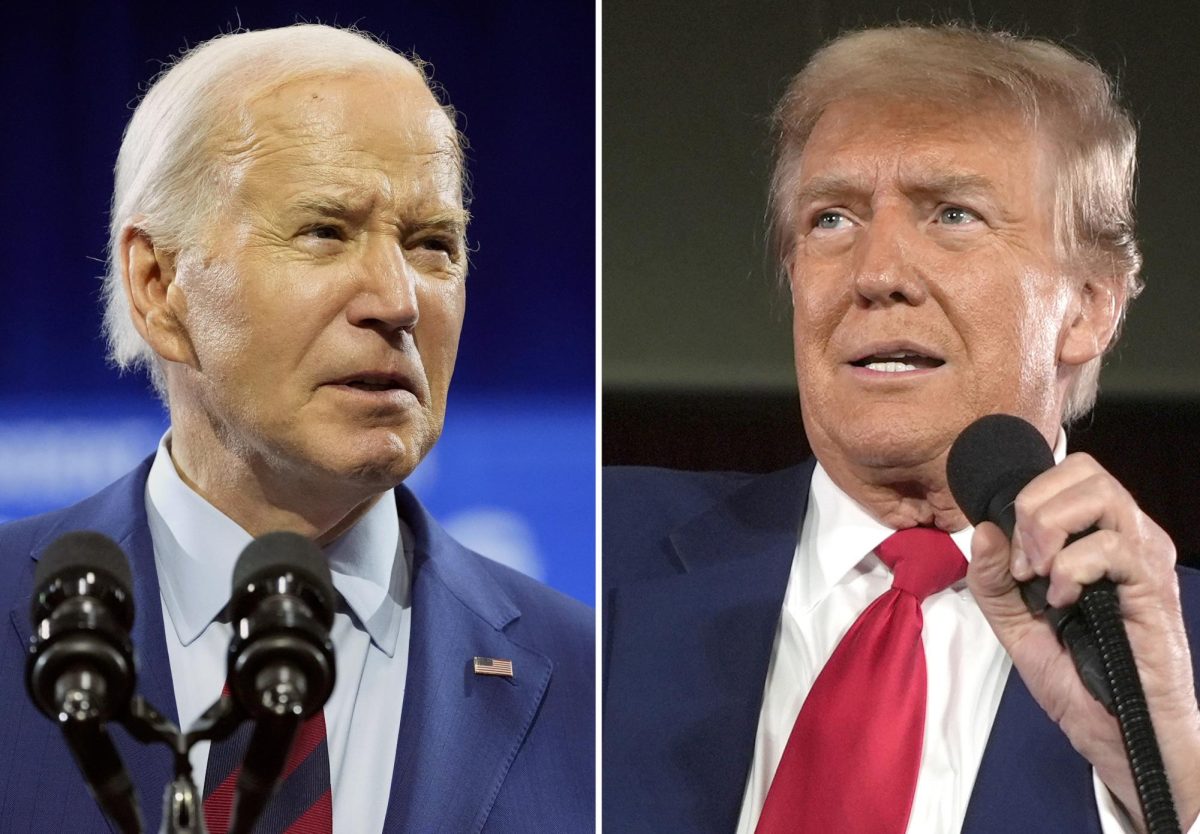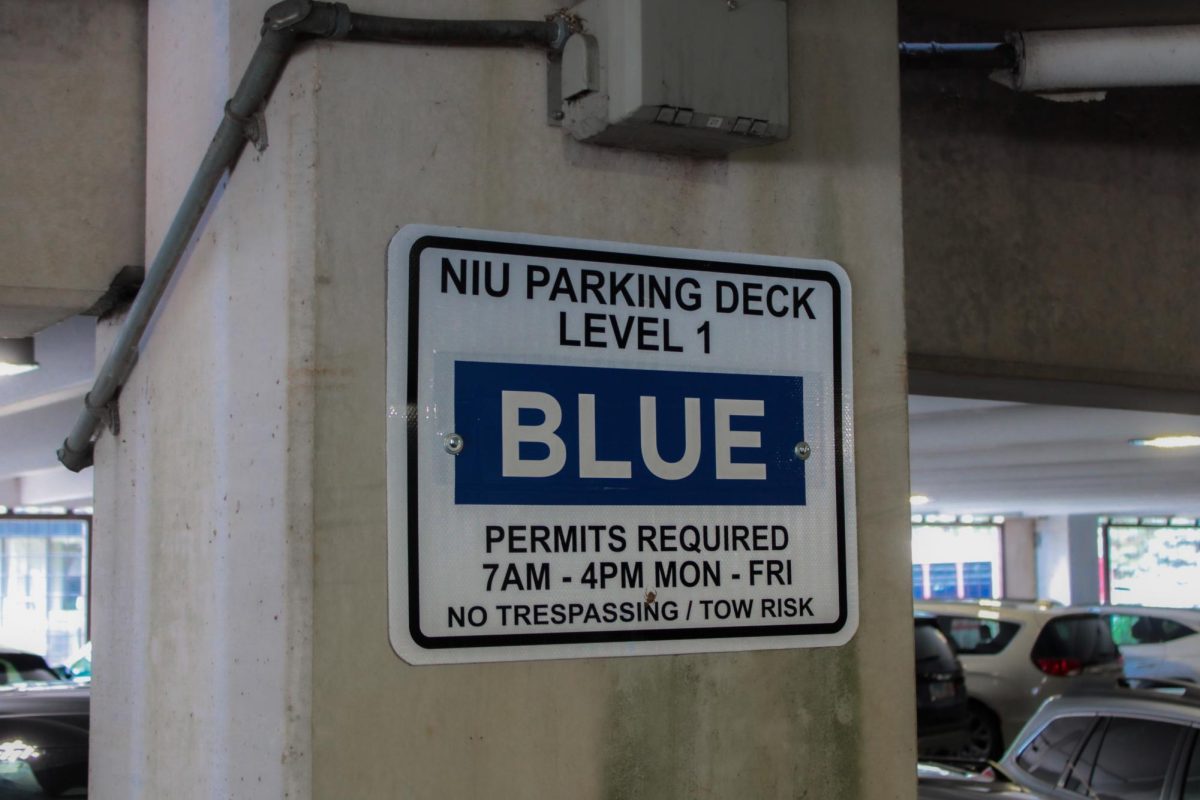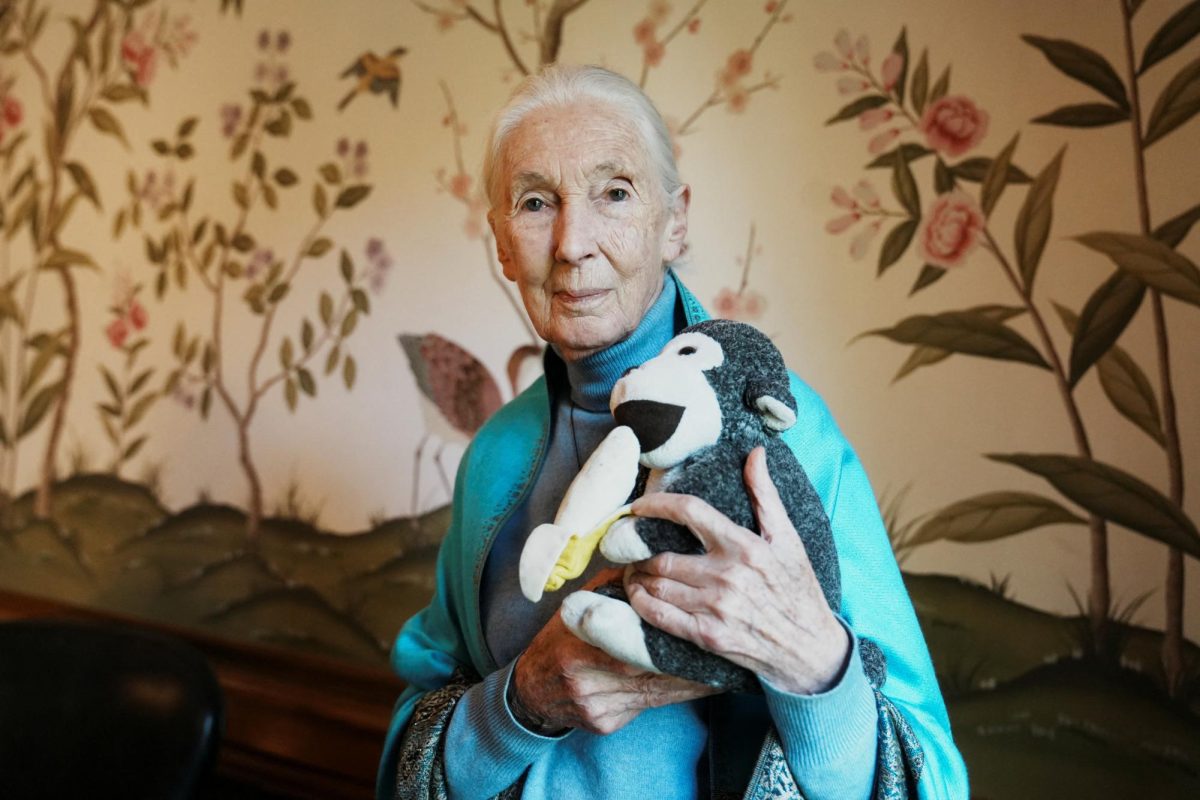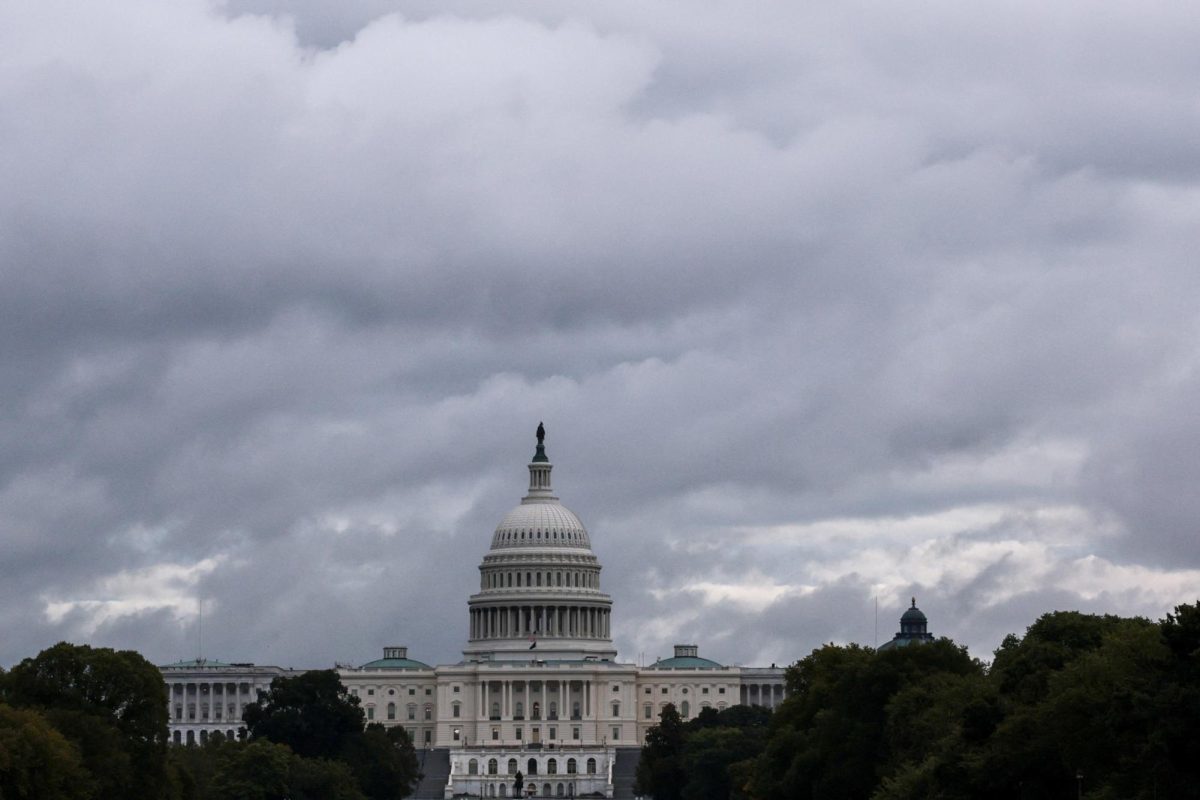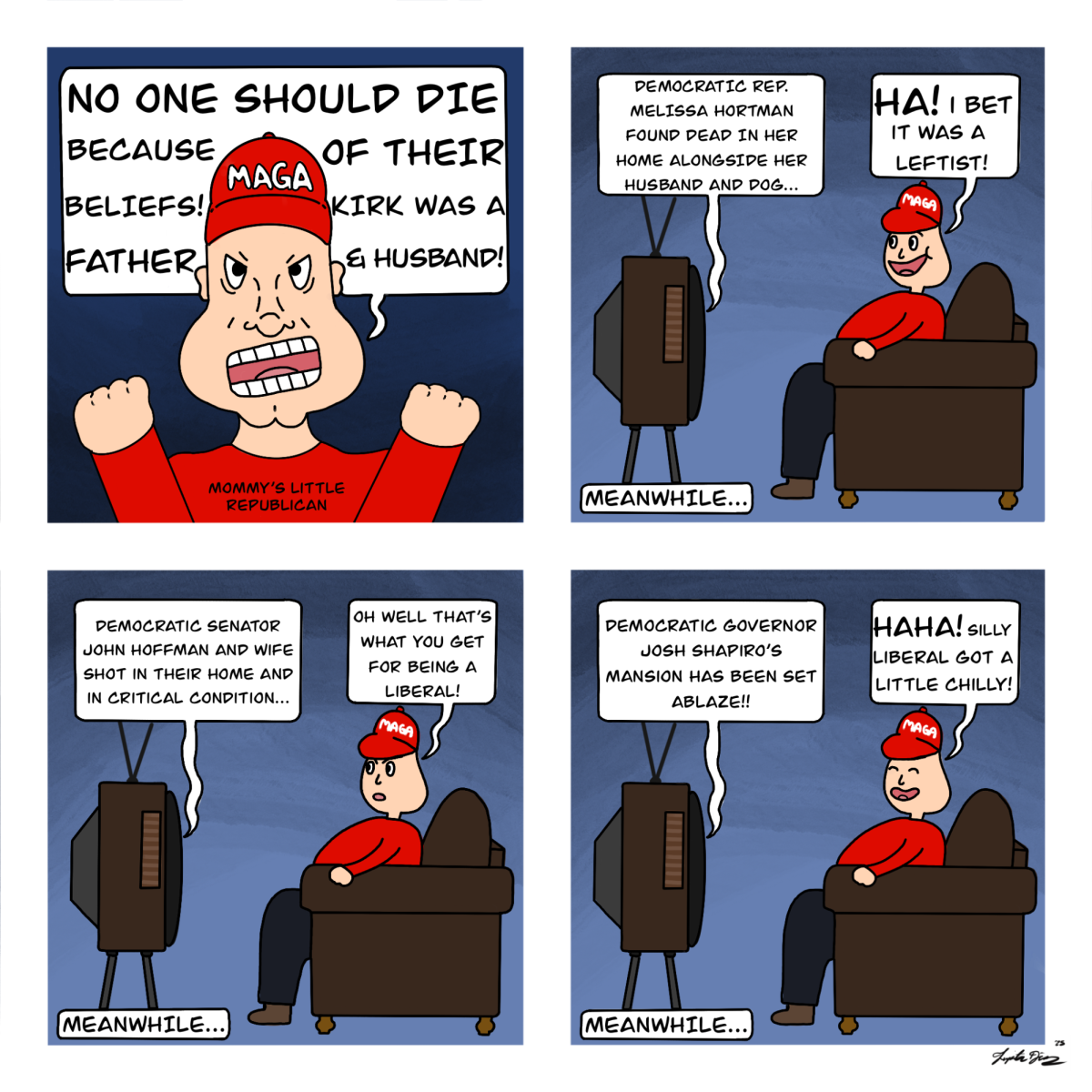Amidst the buzz of For You pages, X notifications, Instagram discovery pages and political headlines, political conversations and memes are rising around the presidential rematch taking place this fall. However, it’s crucial to remember that the entertainment value of this content should not distract from important decisions that influence who we check in the ballot box.
Often we see clips of both political candidates and then see people’s reactions and opinions within comment sections. More than half of Generation Z — people aged 11 to 26 — spends about four hours daily on social media, according to Morning Consultant.
With so much media to consume and so many opinions to hear, young people absorb it all and make their own conclusions from social media. Being ridiculous is often a key to social media stardom, and when some presidential candidates are more outrageous than others, it makes for better content.
When politicians present a side of confidence, outspokenness and risky humor in the face of the professionalism we expect from leaders, it is outrageous and worthy of media attention.
People may feel as if these politicians are of the people: someone who gets them and sees how regular people feel. But these personalities are likely not genuine and are rather a part of a strategy to win our hearts over while distracting from our heads.
When only nonverbal information is available, people prefer political candidates they perceive as having personality traits they value in themselves, according to the National Library of Medicine.
So while we approach the rematch of former President Donald Trump and President Joe Biden, the memes and goofy content about these candidates may be entertaining, but does this funny content really reflect how Gen Z feels about both candidates?
April Clark, a political behaviorist and political science professor at NIU, believes that social media interaction stems from the candidate themselves.
“Part of the way people engage in social media is a reflection of how the candidates use social media,” Clark said.
She agrees that Trump pushes the line of what we accept from political candidates.
“The way he approaches politics is very different to what we’re used to as Americans. Trump is a master of producing reactions from people,” Clark said.
He defames people, claps back and burns his opponents, something that makes for ideal and funny content: it doesn’t matter if you hate him or think he’s the holy savior of the United States.
If you don’t want to look at it through a political lens, companies are doing it too. Take Duolingo, the language learning app. Duolingo’s marketing team has conjoined humor with relatable Gen Z lingo, which is outspoken and the complete antithesis from what we expect corporate language to be, making it only funnier.
Duolingo called an official United Kingdom account a colonizer in a TikTok comment in response to the U.K. account stating that they deleted Duolingo. Another time, a TikTok featured Duolingo getting a Brazilian Butt lift with Dr. Miami, a celebrity plastic surgeon and nose job specialist.
Similarly, Trump is well known for his egotistical, exclamation-mark-filled tweets, such as a 2018 tweet when he addressed himself as “a very stable genius,” overall causing an unusually casual interaction between the president and the public.
Politicians talk like us, act like us, they must be one of us, right? And it’s funny content, so we connect to it and want to interact with the content more even if we don’t think we like the candidate themselves.
Similar to Duolingo’s marketing strategy, Trump speaks to audiences with a raunchy approach: a tactic not often seen in something as uptight and appearance-based as politics. There’s even a Wikipedia page dedicated to Trump’s monikers for his opponents.
On social media, people often interact with clips of Trump talking outrageously in debates or giving nicknames to his opposers.
Biden, meanwhile, doesn’t show the same comfort, inevitably making the punches against him have a bigger impact.
However, when Biden shows the same level of defense, like when he fired back at a reporter for being called elderly with a bad memory, the clip trended on TikTok.
Fan and foe, everyone seems to be asking about what the president or former president has posted.
Trump’s sensational popularity is probably due to the fact that he is a true and harvested celebrity who’s had many experiences with being an entertainer, not to mention his fans have become cult-like in accepting and spreading all that comes out of his mouth.
Like a car crash, people can’t look away from his ridiculous character.
“Trump is able to provoke really passionate responses from his supporters, his detractors and opponents,” Clark said.
It’s unfortunate Biden is not as iconic right now, and it shouldn’t matter, but with how much media people consume, they are going to inevitably see a lot of Trump, and they are likely going to experience strong, influential feelings about him.
Being iconic by Gen Z terms does not equate to being a sufficient and lawful president, however — clearly Trump has proven this true — but people trust who they can laugh with and who they feel genuinely understands the world like they do.
To a level, Biden appears personable too, but his humor does not often cater to Gen Z and social media, which only shines a light on how old the man is.
With only a four year age difference, we sure don’t hear the same amount of comments about Trump’s old age because his personality and media presence make him appear to be more “in the loop” — which may be called immature by some who appreciate traditional professionalism.
It’s not like Biden is suffering to get a following. In fact, Biden is currently in the lead with younger voters, according to a Havard youth poll. But Clark brings up the point that since he is the president right now, Biden is going to face more blame for the state of the country as opposed to his opponents. The complexity of international conflict may also make this election seem to have higher stakes as there is a lot expected of the current president and his successor.
Clark is concerned about young people not voting in the election, but not about current democrats turning to the republican party.
“From Biden’s perspective he’s losing support, but it’s not being driven by heavy enthusiasm for Donald Trump,” Clark said. “Historically, going back to 2020, Biden has had an advantage from Gen Z and still has this, but it’s more volatile this round.”
Biden should not have to find a new strategy to match his opponent’s internet popularity and gain a devoted, blindly trusting fan base.
While this group mentality may appeal to some demographics, like younger men who are not degree holders, many younger people appreciate traditional professionalism in candidates.
Instead, voters should be a little more aware of campaign marketing strategies. Just because a candidate is entertaining and popular on social media does not mean they will be a great president.
A particular personality on display doesn’t mean we are seeing everything a candidate supports. Social media, where a lot of modern-day campaigning takes place, isn’t real: it takes snippets of people and makes a frankensteined image of them.
Clark talks about how people are voting using emotional engagement versus cognitive thinking.
“Politics has become very personal. People rely on fear and anxiety, if you use emotions evoked by political issues for decision making then it’s easy to be manipulated,” Clark said.
It takes time to fully get to know a candidate, their plans, beliefs and ideas, but it’s important to do so and disconnect these facts from how they act on digital platforms.
At the end of the day, a candidate’s personality won’t matter; what will matter is how they will lead the country. Marketing is a trap that Americans have fallen into with the two-party political system. We must avoid being too attached to these people.


